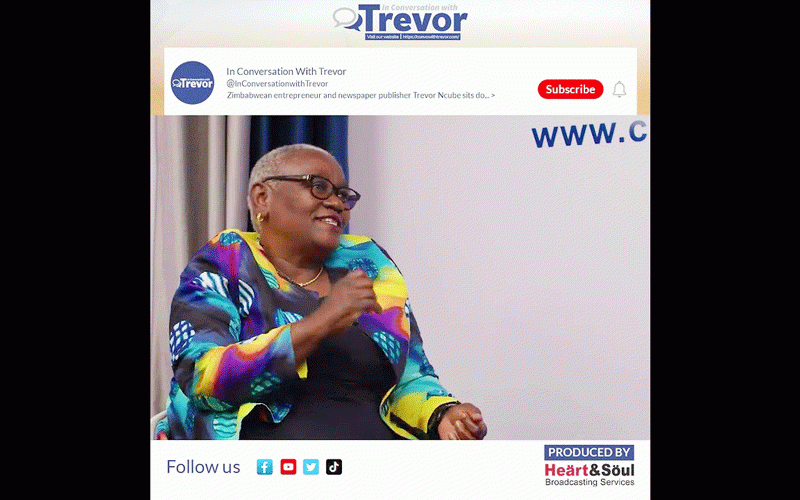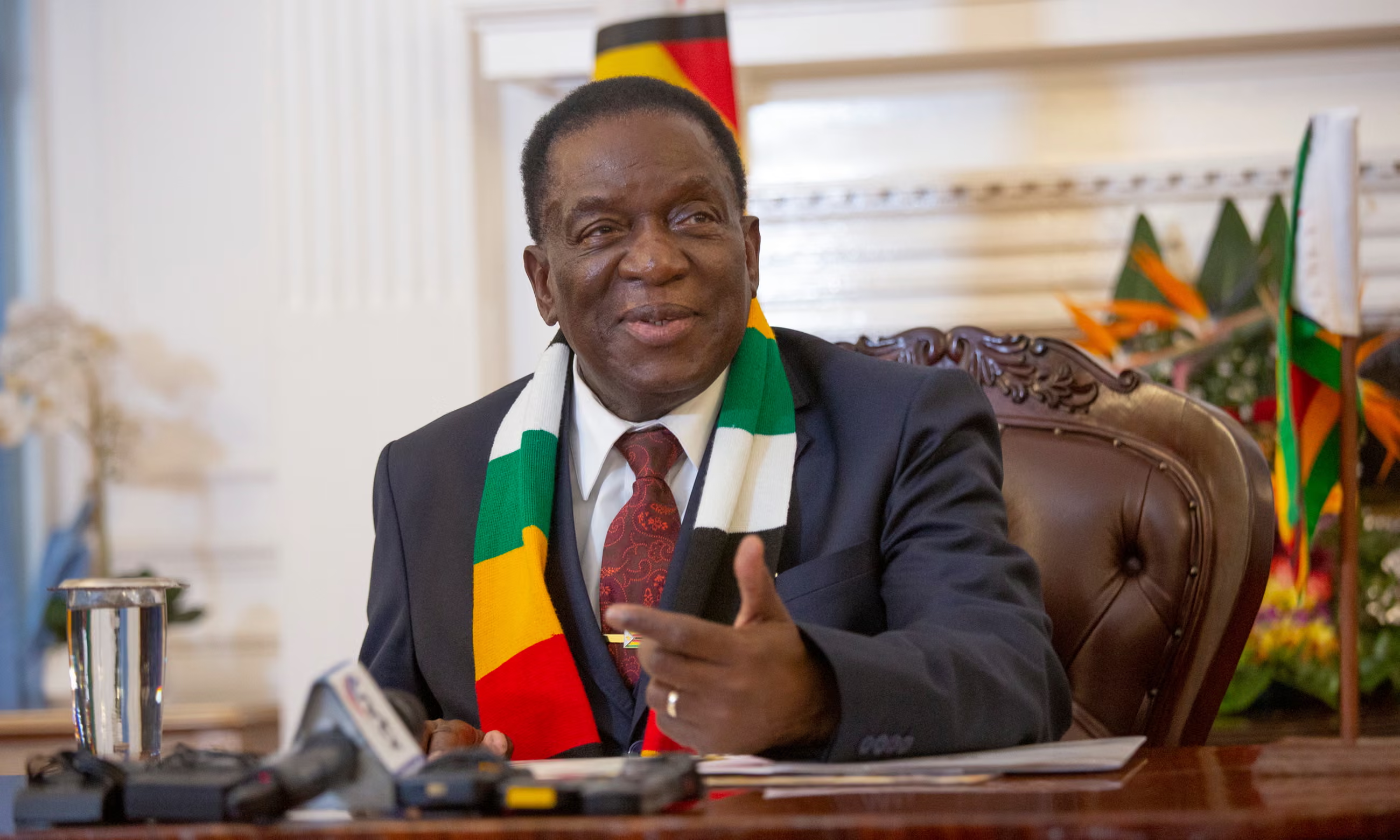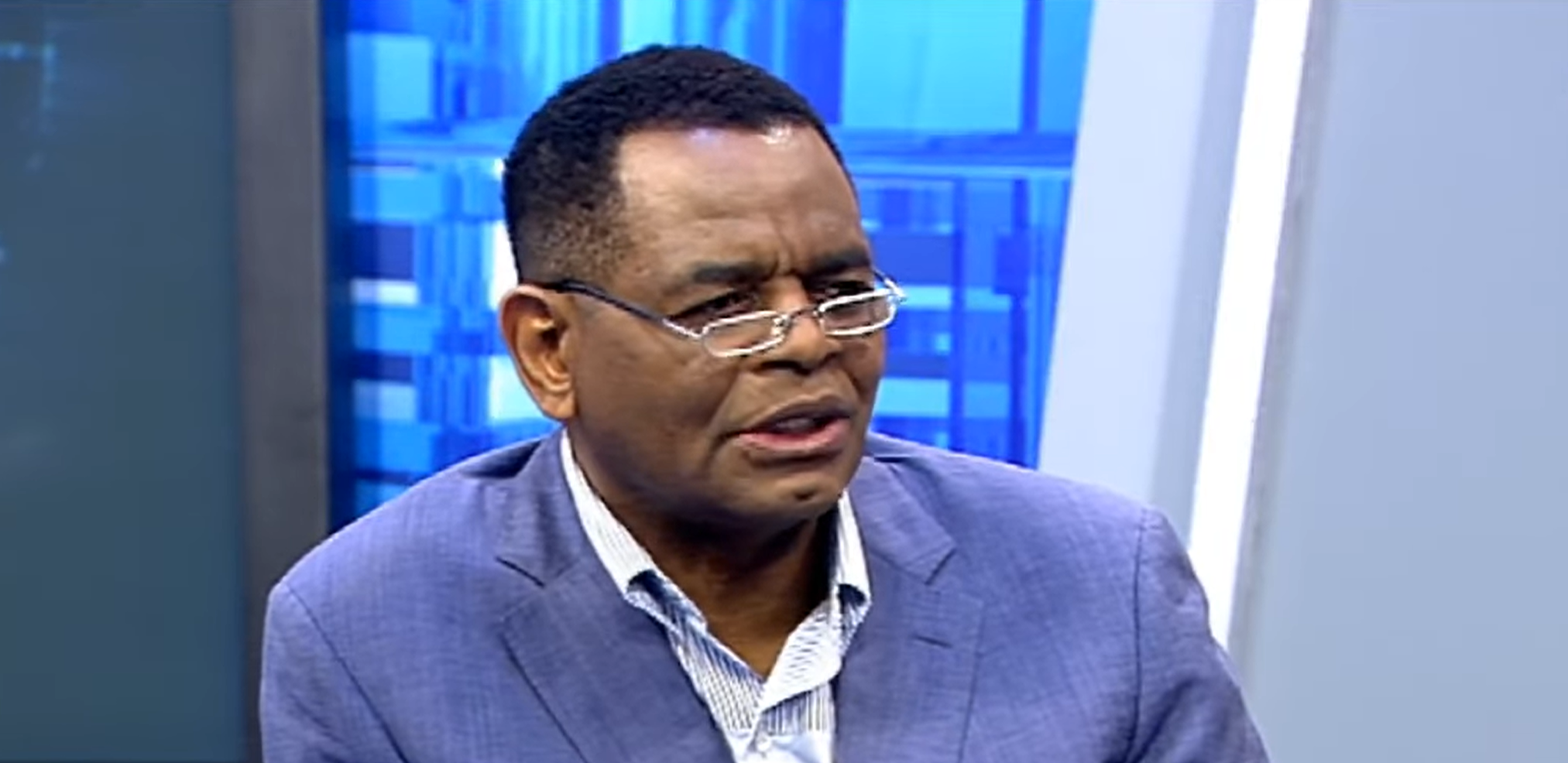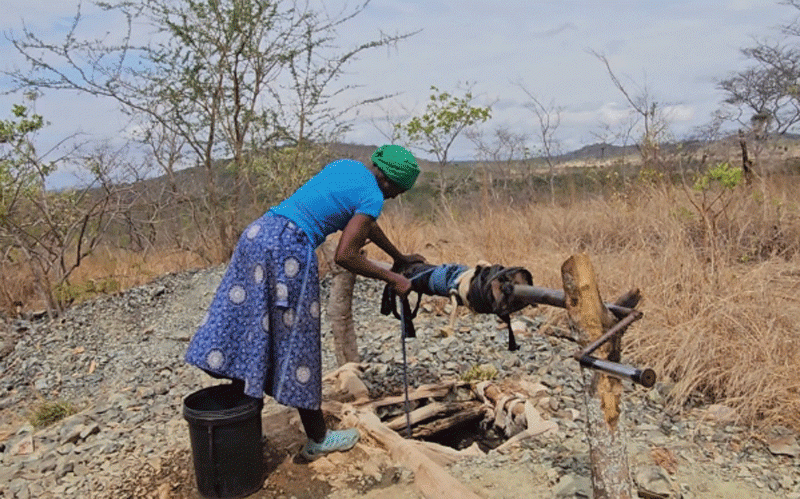
Zimbabwean women are yet to reap real benefits from several reforms meant to protect their rights as they continue to suffer from issues such as domestic violence and preferential treatment of men, a leading women’s rights advocate Edinah Masiyiwa has said.
Masiyiwa (EM), who is the executive director for the Women’s Action Group, made the observation when she appeared on the platform In Conversation with Trevor hosted by Alpha Media Holdings chairman Trevor Ncube (TN).
Below are excerpts from the interview.
TN: Greetings! Welcome to In Conversation with Trevor, brought to you by Heart and Soul Broadcasting Services.
Today I’m in conversation with Edinah Masiyiwa, the executive director of the Women’s Action Group.
You have been with the Women’s Action Group for 33 years and you’ve been executive director for 20 years. What has kept you so long in this space?
EM: For me, I think it›s us, the older generation, we tend to be loyal and stay and really see it that we achieve, that which the organisation is set to achieve.
So I have stayed in the Women’s Action Group to do the work to promote women’s rights, to defend women’s rights wherever possible.
- In Conversation With Trevor: Professor Chetsanga: Driven by the quest to know more about cancer causing chemicals
- Economic woes driving women from politics: WAG
- Masiyiwa: Zim not yet there on women’s rights
Keep Reading
So for me, I was chasing a goal. I was fulfilling a purpose. So when I look back, I can’t really believe that I have been with the Women’s Action Group for 33 years.
TN: Shall we do that? You were chasing a goal. You were trying to help women and girls. If you were to do a scorecard relating to the issues that you›ve been working with, where did the organisation succeed?
Where did the organisation fail? By that, I mean, what are still the outstanding issues? What has been the success areas?
EM: I think for me, the success area is the realisation that there are rights for women and the realisation that women’s rights are human rights. I’m sure everyone understands that now.
In Zimbabwe, when they stand on any platform, the leaders speak to how they’ve put in place policies that protect women and girls. So it really shows that we really have moved.
And I also want to say for the Women’s Action Group, which was the first organisation to really present the status quo, the issue of rights, the issue of where women stand because it was back there in 1983.
When women came together, rounded up and accused of going out there for prostitution, soliciting for prostitution that’s how Women’s Action Group came about as a pressure group to really present the status of women.
We find there is preferential treatment of males as compared to females. So this is where the history of work started.
So that’s when women came together to really present the status quo. And here we are today, women are also at the centre.
We also have positive policies that protect and promote women.
So I feel we have gone a long way where it comes to women’s rights in Zimbabwe.
So coming to you at the question where you say maybe where we have failed.
For us, we see there are so many policies, but the implementation of the policies is not so good.
For example, I will highlight the Domestic Violence Act. It’s an act which we advocated for as a Women’s Action Group together with the Women’s Organisation and it was enacted in 2007.
And as we see today, there are so many issues that still affect women with regards to domestic violence.
And what we see is the service provision like the police sometimes are not responsive to women’s issues.
Sometimes they also counsel the women to withdraw issues when they report such issues.
So yes, we have moved some steps. Someone was doing an analysis and they say maybe we are moving 10 steps forward.
It may be three or four steps backwards. So we are not there yet.
TN: So from what you’re saying, the legislation is in place. I mean starting from that place where women are rounded up because I remember those instances where women were rounded up in the evenings because there were sexual workers as it were and it was seen as a crime to where we are right now.
So what needs to be done, for instance, if we could zero in on the police, they are persuading women to withdraw the charges of domestic violence and so forth. What needs to be done? What should you be doing?
EM: What we need to do is really to continue communicating with the women so they are confident enough to also not withdraw cases.
We should also build their confidence in such a way that they really do not depend on men for their livelihoods because that is the major reason why women withdraw GB cases.
TN: Have you spoken? Have you gone in a campaign to educate the police that the women have this right and it›s your responsibility to protect the women when they come to you with these cases.
EM: Oh yes, we have done that. I think we›ve done quite a lot. This is why we now have fixed in friendly units within the police.
It’s a result of the work we’ve been doing but let’s not forget that we also have our cultural norms which sit deep within us and those are not easy to change because you might also find even female policemen, police women can also persuade the women to withdraw their cases.
So it’s not a simple problem that can be resolved or resolved by a policy, by a law.
TN: You deal with a lot of issues, emergency responses; you deal with the livelihoods of women and girls, water and sanitation, and internally displaced people.
Those can be easy issues to deal with in the current environment that we are in at the moment, economic and political.
Talk to me about the challenges that you experience in those specific areas, humanitarian aid, emergency response, livelihoods, water and sanitation and the situation of internally displaced people.
EM: For me, the major problem is this funding support to implement our programmes. Our trip, for example, when we responded to the Chimanimani cyclone by disaster, we didn›t have enough to really help the women.
I’m sure you also read or heard in the news that there were so many teenage pregnancies and there was a need to talk to those pregnant adolescents.
There was also a need to provide them with baby clothes and to also offer them psychosocial support so that they don’t give up on their lives.
So you find the issue of resources to respond is a big one but we also had to ask other women from other organisations to come and donate whatever they had.
TN: So you want funding to respond to crisis in a crisis situation? Talk to me about that space.
EM: That space is a difficult one. It›s difficult even for the service providers.
*Visit www.thestandard.co.zw for full interview
We also need to support them so that they keep on going because there’s that tendency to sort of give up to say, you know, we can’t continue doing this work.
So it takes great leadership to really respond to such issues.
TN: So you speak about climate change. It›s going to be the women and the girls and the young people that are affected.
You speak about the economic crisis and poverty.
The people that are receiving end are going to be the young, the women and the unemployed, the young boys.
How have you been able to deal with this kind of crisis?
EM: For me, I think all has been like a school of ad knocks. We learn as we go.
So for me, it takes passion to work in this area. It takes commitment. It takes a lot of confidence in what you are doing. It’s something that is purpose driven.
I want to start off with the constitution of 2013.
I think it’s a renowned constitution worldwide for its gender sensitivity. It really spells out gender equality.
And it took a lot of mobilization and educating communities on what should be reflected in the constitution.










